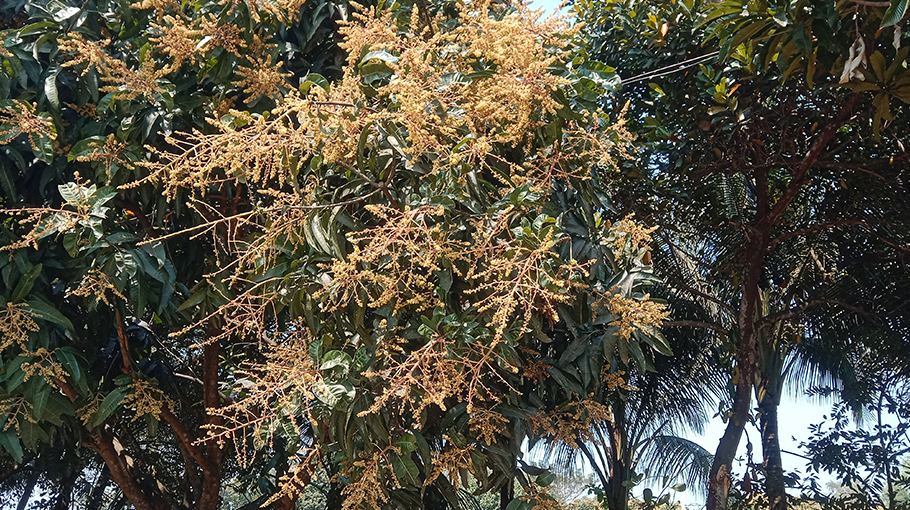Less mango sprouting in Jhenaidah this season
Low production apprehended

Huge mango orchards did not offer flowering and budding in the season when tender green leafs were grown. Frequent untimely rainfall in Bengali month late Poush and Magh was the main reason of this sort of situation. A total 37,932 tons of mango was produced on 2,882 hectares of land in the last year, while the area was estimated for 2,211 hectares in the season where they are expecting maximum production for 33,511 tons. Agriculture department authorities in Jhenaidah told this.
To make up the deficiency, thy have been advising the farmers to take intensive care of the orchards and buds, said the DAE sources.
A number of farmers and mango orchard owners at Kotchandpur upazila and bordering Moheshpur upazila when contacted said about 50 per cent of the mango orchards could not provide mango flowering and budding. Further, the number of flower and budding was so poor there. It will not produce optimum bearing this season.
They said untimely rainfall in late winter was the main reason of situation which will badly affect the farmers and orchard owners as well when they wlil be deprived off lengra, himsagar, khirbhog, maldaha, amrapali and some local varieties of mango, they said.
According to the office sources of the deputy director of the department of agriculture extension (DAE) at Jhenaidah Khamtrbari about 78 percent of the trees offered flowering and them budding, While remaining plants could not offer the same in the season.
The sources said Upazila wise area of orchards offered flowering in the season was 580 hectares in Jhenaidah Sadar, 370 hectares in Kaliganj. 710 hectares in Kotchandpur, 500 hectares in Moheshpur, 25 hectares in Shailkupa and 26 hectares in Harinakundu.
D AE deputy Director in Jhenaidah Asgar Ali when contacted admitted least flowering and budding in the mango trees. They said the situation caused by the nature was unexpected.
Deputy Director of the DAE said they had advised the farmers to take intensive care of their plants to harvest better and the filed level DAE officials were advised to stand by the farmers round the clock so that they could make up the deficiency in the season.




